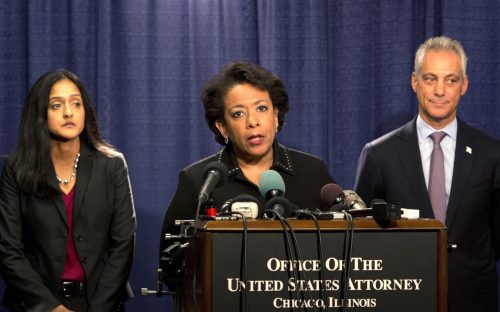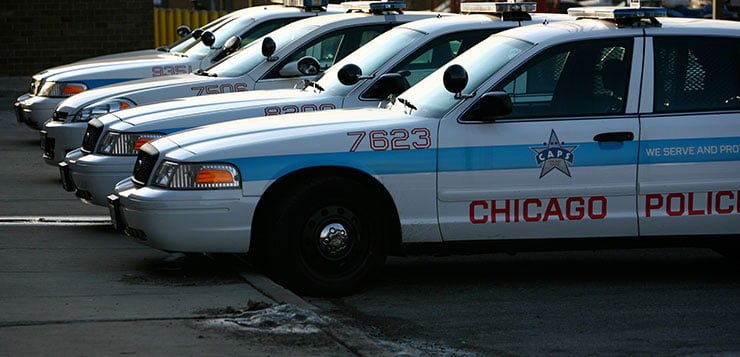Working against the clock, the Department of Justice released their findings from a 13-month investigation into policing practices in Chicago. The 164-page report breaks down the problems that face community policing in Chicago, highlighting a broken system that has trampled on the Constitutional rights of Chicagoans.
The report — which was released Friday — found that the Chicago Police Department (CPD) engaged in a pattern or practice of using force, “including deadly force, in violation of the Fourth Amendment of the Constitution,” a press release from the Department of Justice said. Along with this, the DOJ found that Chicago has a deficient accountability system which contributes to CPD’s pattern of unconstitutional conduct.
For those in the field of community policing, and who have pushed for or suggested reforms, the report’s findings are unsurprising but welcomed. Timna Axel, communications associate at the Chicago Lawyer’s Committee for Civil Rights Under the Law (CLCCRUL), said that the overall feeling from working in minority communities that have largely been the targets of these shoddy police practices is that the steps taken are too little too late.
“(The DOJ report) confirms what we know,” Axel said. “It’s going to be helpful as we look to solutions. We’d like to see Mayor Rahm Emanuel invite community stakeholders into the conversation going forward.”

The report pointed to various areas that CPD could improve policing practices and trust in the department.
“The failures we identified in our findings — that we heard about from residents and officers alike — have deeply eroded community trust,” Principal Deputy Assistant Attorney General Vanita Gupta, head of the Civil Rights Division, said during the press conference. “But today is a moment of opportunity, where we begin to move from identifying problems to developing solutions. I know our findings can lead to reform and rebuild community-police trust because we’ve seen it happen in community after community around the country over the past 20 years.”
The DOJ released a similar report on Baltimore’s police department following the death of Freddie Gray. The report on Chicago’s police department followed the death of Laquan McDonald, who was shot 16 times by officer Jason Van Dyke. McDonald’s death brought concerns of police misconduct to light in the city and spurred protests and meager reforms from the mayor’s office.
In April 2016, Emanuel announced that he would adopt recommendations from a police reform task force in order to start repairing trust between communities and the police department. These measures included more meetings between officers and minority communities, as well as faster investigations into potential police misconduct.
Friday’s report laid out its own set of recommendations that went steps beyond Emanuel’s April reform implementations.
The list of recommended solutions included developing community policing as a core component of CPD’s policing strategies, tactics and training; ensuring that officers police fairly and compassionately in all neighborhoods, including in those with high rates of violent crime and in minority communities; and increasing transparency regarding CPD and IPRA/COPA activities, as well as their investigations.
The Police Accountability Collaborative, which includes CLCCRUL, American Civil Liberties Union-Illinois and other organizations in Chicago, believe that for real reforms to take place Chicago’s elected officials must “take ownership of a locally driven process to continue implementing the unfinished business of these findings and recommendations.”
“There can be no more tinkering around the edges. It is time for fundamental reform, grounded in ongoing court oversight and independent monitoring,” Karen Sheley, director of the police practices project at ACLU-Illinois, said in a statement. “To date, the city has failed to sign a consent decree with the Department of Justice. Such a decree would ensure that a federal judge would oversee the reform that the report shows is critical.”
For there to be change, Axel said, there would need to be systemic disclosure of data and a community oversight board would need to be established among other things. Though the report was unsurprising for her and those she works with, it does provide a lot to work with and potential reforms to pursue for the future.
“We feel now is the time for civil leaderships to step forward,” Axel said. “There’s no one in the driver’s seat on this issue and now is the time for that. At the end of the day, police accountability makes us all safer.”



